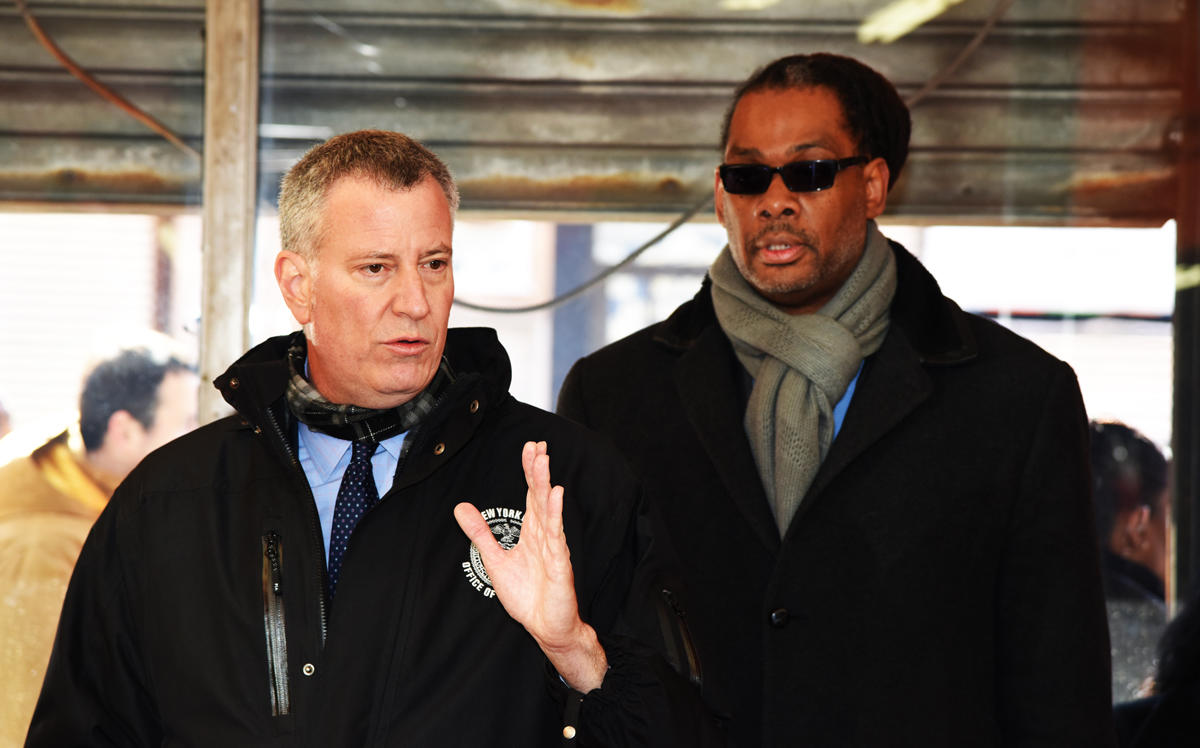Trending
Here’s how de Blasio will “take” buildings from bad landlords
City to press expansion of law allowing Third Party Transfer program, which is used to foreclose on property owners behind on tax and utility payments

When Mayor Bill de Blasio said Thursday that he would “take” buildings from landlords who threaten the well-being of tenants, he stopped short of explaining how. But city officials have since told The Real Deal that the plan is to expand laws governing an existing and highly contentious program that saw the city foreclose on more than 60 properties in Brooklyn, Bronx and Queens last year.
Third Party Transfer, which is administered by the department of Housing Preservation and Development, gives the city the authority to take over multifamily buildings, many of which number just a few units, where owners have fallen behind on tax and utility bills, sometimes in amounts as low as a few thousand dollars. Under de Blasio’s plan, an HPD representative said, seizure powers would be expanded in a new program to include “the worst buildings that have failed to correct violations and pay the debt they owe the City within a reasonable timeframe.” Such an expansion would require authorization of City Council.
City Councilman Robert Cornegy, who chairs the body’s housing committee, has criticized TPT for disproportionately affecting people of color in the outer boroughs, who in some cases have owned their seized properties, and lived in them, for many years. He released a statement on Thursday saying that he “cannot support expanding a policy that has already proven deeply problematic for black and brown homeowners.” Bronx Borough President Ruben Diaz Jr. and Councilman Fernando Cabrera also announced a press conference scheduled for Friday to discuss similar concerns.
In his state of the city speech on Thursday, de Blasio announced the creation of the Office to Protect Tenants, a new entity with a mandate to increase and enhance cooperation between agencies working to combat tenant abuse and violations of building laws. Changes to the law governing TPT would be another tool, placing a new threat on owners who do not resolve building violations and pay off fines. A city hall spokesperson elaborated saying the new program would be “laser focused on the worst of of worst landlords with hazardous conditions that are not addressed.”
Frank Ricci, a lobbyist for the landlord group the Rent Stabilization Association, called de Blasio’s latest announcement “grandstanding” and said there were already enough laws on the books to punish unscrupulous landlords.
“The $450,000 he will be using for his office of tenant protection would be better spent fixing up vacant NYCHA apartments and actually providing an apartment for families that need it,” Ricci said.
The Real Estate Board of New York, however, came out in support of de Blasio’s increased enforcement efforts on Thursday, but in a follow up statement was less enthusiastic about the prospect of building seizure.
“Enhanced coordination among city agencies will better protect tenants and prevent additional bureaucracy that negatively impacts the vast majority of property owners who comply with the law,” said REBNY president John Banks. “Seizing of property is the most extreme type of enforcement and should only be done after due process has been afforded property owners. Owners must have a right to fight any attempt to seize private property.”



